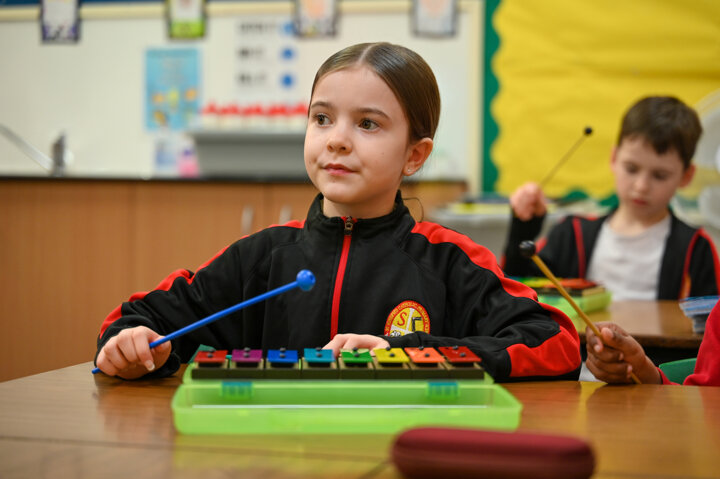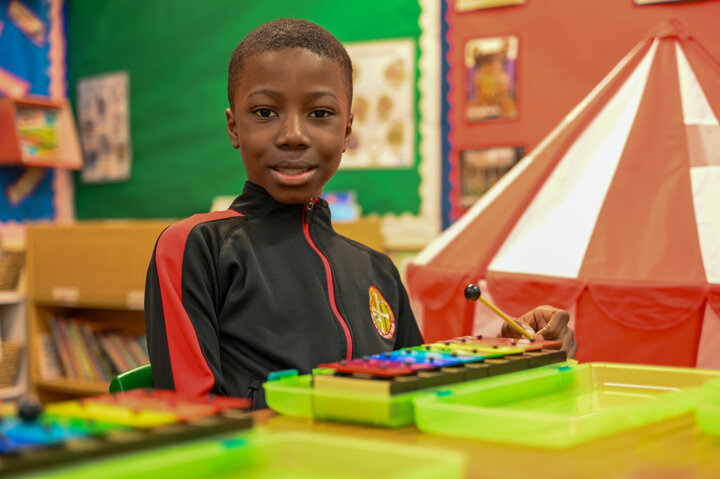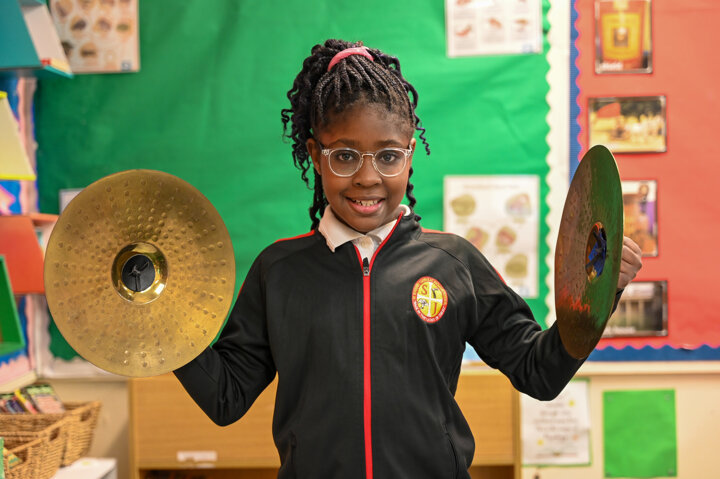Music
Subject Lead: Mrs Linley
A warm welcome to our Music page. At St Joseph's, our curriculum has been designed to excite and inspire all of our children, ensuring it is purposeful, progressive and meaningful for every child.
Intent
At St Joseph’s Catholic Primary School, our music curriculum intends to inspire creativity, self-expression and encourages our children on their musical journeys as well as giving them opportunities to connect with others. We hope to foster a lifelong love of music by exposing them to diverse musical experiences and igniting a passion for music. By listening and responding to different musical styles, finding their voices as singers and performers and as composers, all will enable them to become confident, reflective musicians.
Implementation
At St. Joseph’s Primary School, music is taught following the National Curriculum with weekly lessons.
At St. Joseph’s, music lessons are delivered weekly during designated half terms, led by our music specialist teacher, (provided by Tees Valley Music Service) in KS2. In KS1, Charanga is used to provide a high-quality curriculum.
Lessons follow an established, consistent structure, allowing pupils to develop all key music skills: listening, appraising, improvising, composing and performing. Music is embedded into the culture of the school, with whole school singing in assemblies and peripatetic teaching.
We aim to ensure that all pupils have opportunities to explore sounds through listening, performing and composing.
- Listening: pupils appreciate a diverse repertoire of music, some of which is related to class topics, giving them some understanding of the chronology of the history of music and how it sits beside world history.
- Pupils are also encouraged to reflect on the works of great composers.
- Performing: Pupils are given opportunities to access a range of instruments and refine their skills appropriately. Pupils are provided with a variety of enrichment opportunities and wide-ranging musical experiences including; liturgical celebrations, (Easter, Christmas) and Tees Valley Music events.
- Composing: within music lessons children have opportunities to compose both individually and as part of a group.
Most importantly, we aim to ensure pupils value the importance of music, as a way to express themselves creatively, especially through their voices.
Within the EYFS setting, music is an integral part of children’s learning journey. Rhyme and rhythm are utilised throughout the learning of phonics, handwriting and mathematics. Children learn a wide range of songs and rhymes and develop skills for performing together. Singing and music making opportunities are used frequently to embed learning, develop musical awareness and to demonstrate how music can be used to express feelings.
Impact
Pupils will:
• Value music in the context of their own well-being.
• Respect and appreciate a wide repertoire of music.
• Retain subject-specific knowledge and vocabulary – they will know more and remember more
• Have taken part in a range of opportunities to foster their instrumental and/or vocal ability.
• Participate in wider musical activities and have increased confidence.
• Have an awareness of musical opportunities available both in school and beyond the classroom.
• Be well placed to make good progress at Key Stage 3
"Music gives soul to the universe, wings to the mind, flight to the imagination and life to everything."
- Plato


